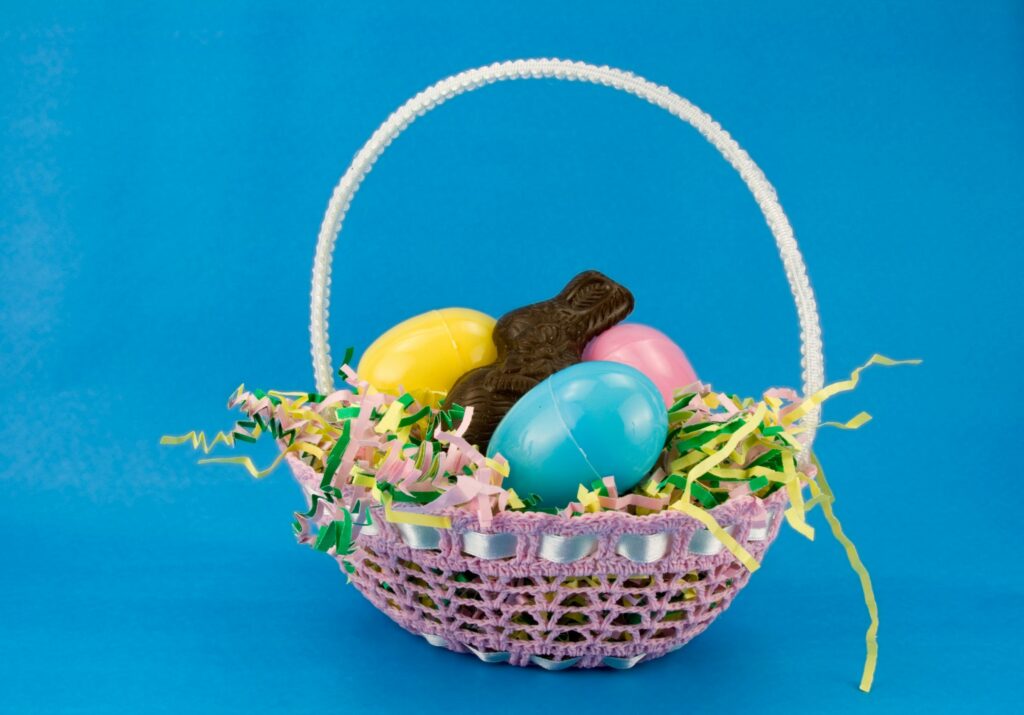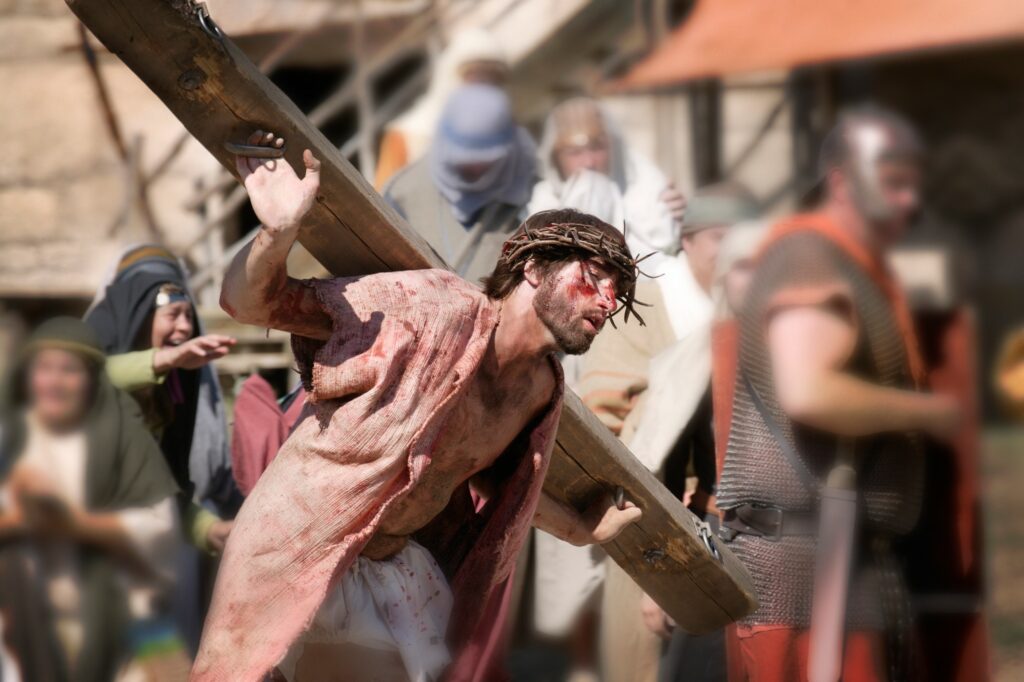How a Rainy Night and Beyoncé Kept DC Metro Running
August 9, 2023
In the captivating world of music and entertainment, artists wield a unique power that extends beyond the boundaries of the stage, leaving an indelible mark on the hearts and minds…

As spring arrives and the sweet scent of blooming flowers fills the air, Easter draws near, bringing with it a sense of joy and excitement all over the world. This holiday is celebrated in different ways by diverse cultures, each with its unique customs and traditions. As we embark on a cultural journey to explore Easter customs across the globe, we’re enchanted by the depth of emotions and the richness of experiences that these celebrations offer.
From the vibrant processions of Spain to the colorful egg hunts of America, and from the solemn rituals of the Philippines to the festive feasts of Italy, we will discover how Easter unites us all in a tapestry of faith, family, and community. So let us open our hearts and minds and explore Easter traditions around the world.
Easter is a major Christian holiday that commemorates the resurrection of Jesus Christ from the dead. It is celebrated by billions of people worldwide and is considered the most important event in the Christian calendar. The holiday falls on the first Sunday after the first full moon following the vernal equinox and generally occurs in the window between March 22nd and April 25th.
The origin of Easter can be traced back in the Bible to when Jesus was arrested, tried, and crucified by the Roman authorities. Three days later, on Easter Sunday, Jesus rose from the dead, an event that is considered the cornerstone of the Christian faith.
Easter is a time of great religious significance for Christians. It represents the triumph of life over death and the promise of eternal life for believers. It is a time of joy, hope, and renewal, and is celebrated with great solemnity and reverence in churches around the world. Many churches and communities hold special services and processions.
In addition to its religious significance, Easter has also become a popular secular holiday celebrated by people of all faiths. In many countries, Easter is associated with the arrival of spring and is marked by the giving of chocolate eggs, Easter baskets, and other gifts. Easter egg hunts and other family activities are also popular, and many communities hold parades and other festive events to celebrate the holiday.

Easter traditions in North America have evolved over time and are celebrated in unique ways across the United States and Canada. In the U.S., Easter traditions include Easter egg hunts, Easter baskets, and Easter parades. Easter egg hunts are a popular tradition, especially among children, where they search for candy-filled eggs hidden around the house or yard. Easter baskets are also common, delighting children on Easter morning with decorative baskets filled with sweets and small toys. Easter parades, such as the famous New York City Easter Parade and Bonnet Festival, are a colorful display of fashion and creativity, with participants donning elaborate Easter-themed hats and costumes.
Another popular Easter tradition of note in the United States is the White House Easter Egg Roll, which dates back to 1878. The event takes place on the White House lawn, where children roll Easter eggs down the hill in a race. The event also includes various other activities, such as egg decorating and storytime with the First Lady.
To the north in Canada, the Tulip Festival is a popular tradition that takes place in Ottawa during the springtime. The festival commemorates the country’s liberation during World War II when the Dutch royal family sought refuge in Canada. As a gesture of gratitude, the royal family sent thousands of tulip bulbs to Canada, which were planted in Ottawa. Today, the festival features over a million tulips in bloom, attracting tourists from around the world.
These traditions have evolved over time, reflecting changes in society and cultural influences. For example, the commercialization of Easter has led to the widespread production and sale of Easter-themed candies and decorations. Moreover, some people have incorporated secular elements into their Easter celebrations, such as the Easter Bunny, which is believed to bring gifts and treats to children.
Easter traditions in Europe are diverse, with each country having its unique customs and practices. In Spain, Easter is celebrated with processions that take place throughout Holy Week, leading up to Easter Sunday. These processions, known as Semana Santa, are a significant part of the country’s culture and feature elaborate floats, statues, and reenactments of Biblical scenes. The streets are lined with onlookers who watch the procession, often accompanied by somber music.
In Italy, Easter is celebrated with feasting and festivities. Families gather together to enjoy traditional Easter dishes, such as lamb and Colomba cake. In some regions, such as Florence, a large cart filled with fireworks is set off to mark the occasion. The cart, known as the Scoppio del Carro, is considered a symbol of good luck for the coming year.
Poland has a unique tradition of decorating Easter eggs, known as pisanki, which are intricately designed using wax and dyes. These eggs are considered a symbol of new life and rebirth and are often given as gifts to family and friends. The tradition of decorating pisanki dates back to pagan times when they were believed to possess magical powers.

Easter customs in Asia are varied, reflecting the unique cultural and religious backgrounds of each country. In the Philippines, Easter is celebrated with great religious fervor, with the week leading up to Easter Sunday known as Holy Week. During this time, the streets are filled with religious processions, culminating in the Passion Play, which reenacts the crucifixion of Jesus. Devout Christians participate in the reenactment, carrying wooden crosses and flagellating themselves as a sign of penance and devotion.
In South Korea, Easter is celebrated alongside Buddha’s birthday, which falls around the same time. The holiday, known as Dongji, is a time for families to gather and enjoy traditional foods such as rice cakes and red bean porridge. Additionally, many Korean Christians participate in church services and engage in prayer and reflection.
To the east, Christians in India celebrate with church services and processions, and people exchange Easter greetings and gifts. In the state of Goa, a unique tradition known as the “Burning of Judas” takes place, where effigies of Judas are burned in public places, symbolizing the end of evil and the triumph of good. The religious and cultural significance of these Easter traditions is significant and serves to remind us of the importance of faith and community.
There is a wide range of different Easter customs in Africa, and these serve to reflect the diverse cultures and religious beliefs of the continent. In Ethiopia, the Orthodox Christian Church celebrates Easter with a unique festival known as Timkat. The festival, which takes place on January 19th, commemorates the baptism of Jesus in the Jordan River. During the festival, priests carry holy water from the church and sprinkle it on the crowds, symbolizing the baptism of Christ. The water is believed to have healing properties and is collected by the participants to take home.
In Nigeria, Easter is celebrated with great joy and enthusiasm. Churches hold special services and processions, and people exchange Easter greetings and gifts. Easter Sunday is a time for families to gather and enjoy traditional foods such as Jollof rice, fried plantains, and chicken. Some Nigerian communities incorporate traditional dances and music into their Easter celebrations.
Across Africa, Easter is also celebrated with traditional African customs and practices. For example, in some countries, Easter celebrations incorporate elements of the traditional African harvest festivals, while in other countries, Easter is celebrated alongside other religious festivals, such as the Muslim festival of Ramadan.
Exploring Easter customs and traditions around the world reveals the diversity and richness of the ways in which people celebrate this important holiday. From the Passion Play in the Philippines to the White House Easter Egg Roll in the United States, each culture has its unique customs and practices that reflect the historical and cultural context of the region. Understanding and appreciating these traditions can help us gain a deeper appreciation of the significance of Easter and foster greater cross-cultural understanding and appreciation. As we continue to learn about the world’s different Easter customs and traditions, we are reminded of the beauty and richness of diversity and the importance of celebrating and preserving cultural heritage.